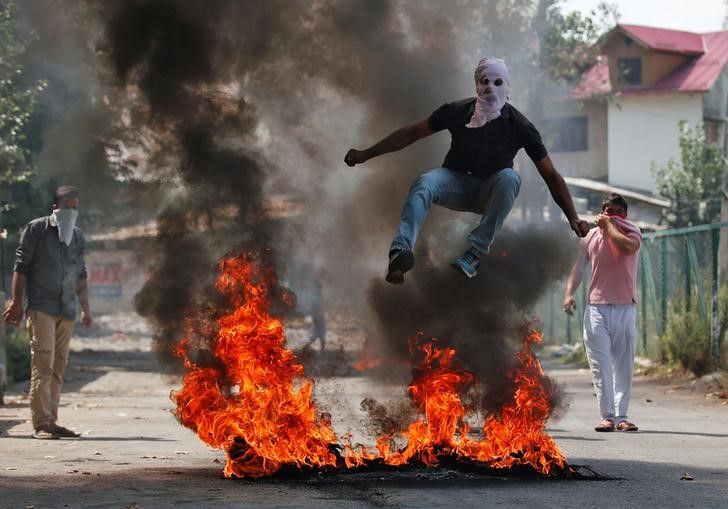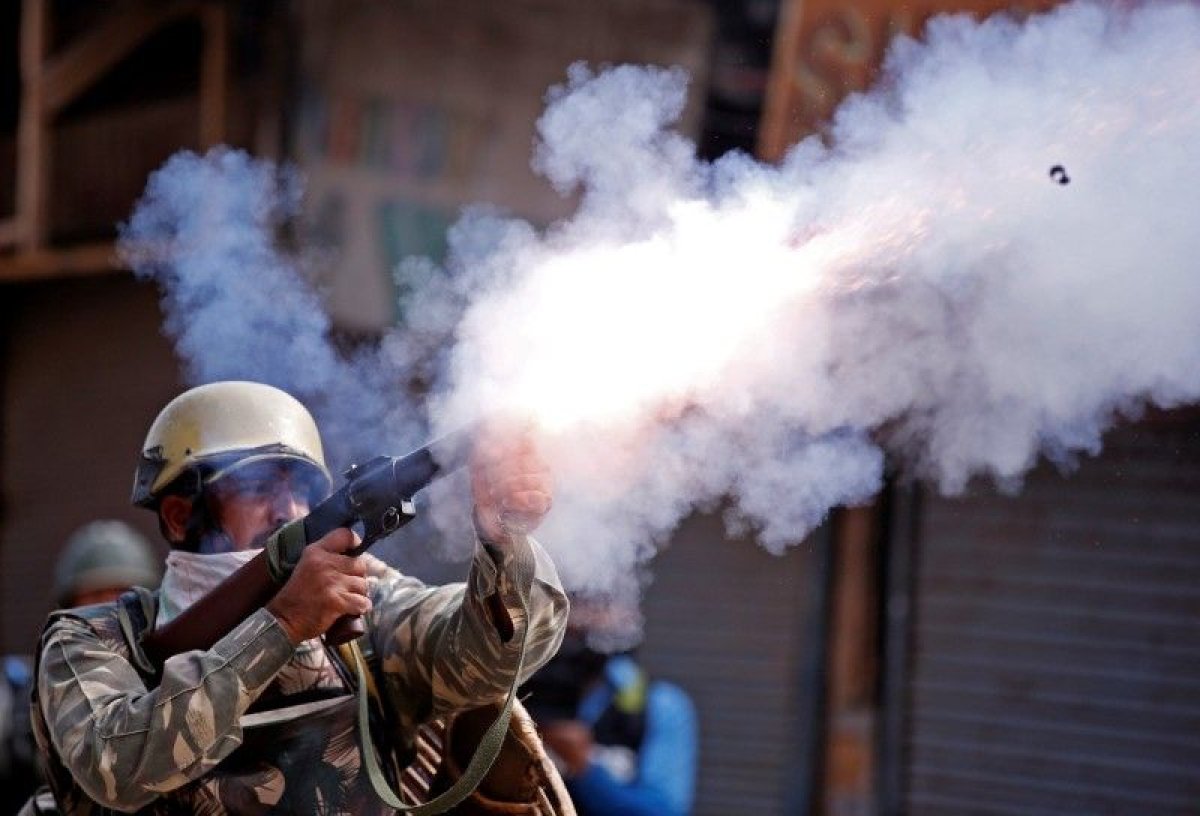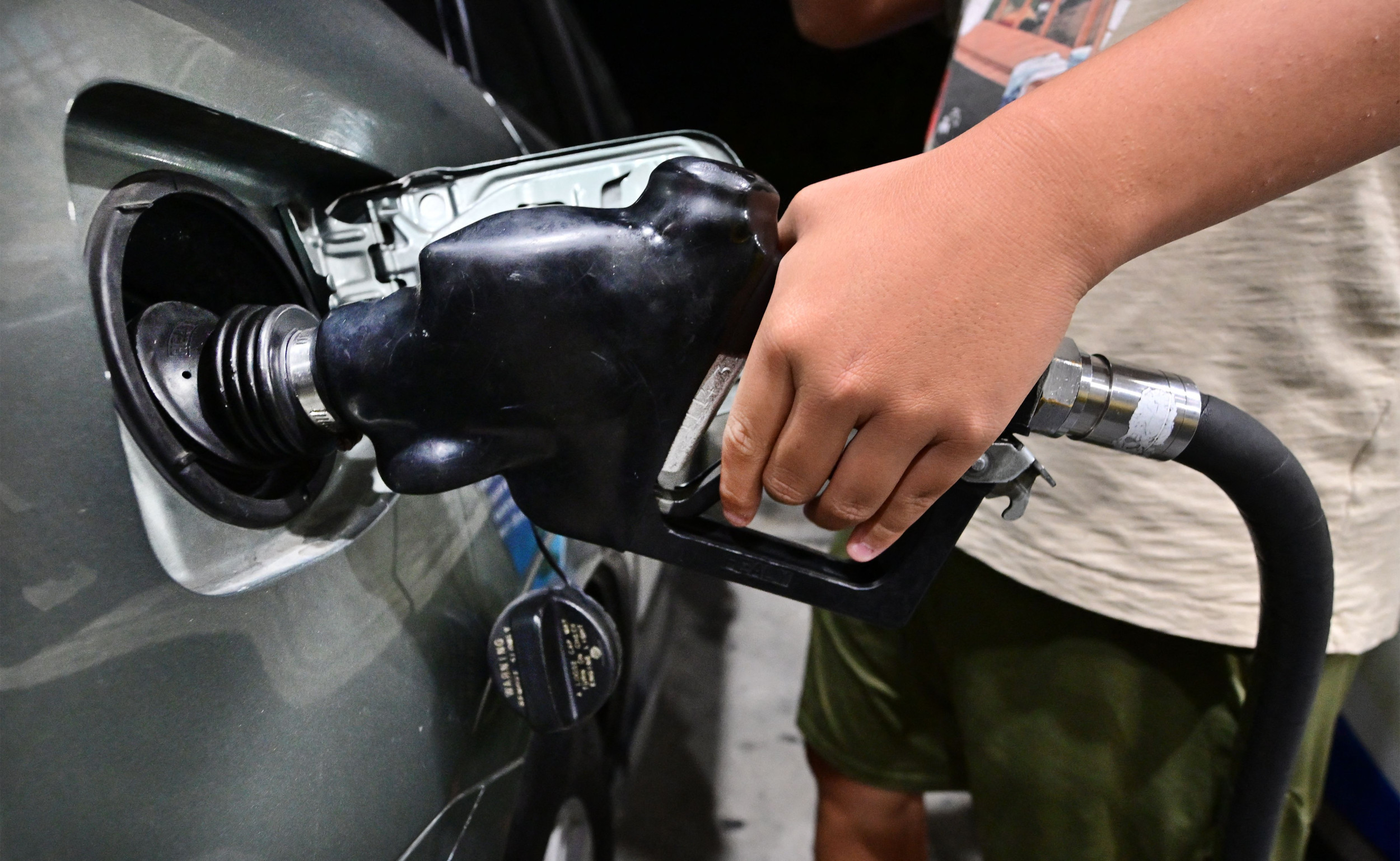
In Srinagar, Indian Kashmir's main city, calls to prayer ringing out from mosques went largely unanswered on Tuesday, as families in the Muslim-majority region heeded a curfew that made celebrating Eid nigh impossible. Adil Lateef was an exception. The 22-year-old was able to slip out of his home and pass along alleyways to reach his local mosque where a couple of hundred worshippers gathered.
Usually hundreds of thousands of people would meet on outdoor prayer grounds to mark Eid al-Adha, one of the Muslim calendar's most important dates. "Normally, we would cook 10 lamb dishes at home on Eid, but today all we were able to get was cheese from the market," said Lateef, who works for a local company and lives with his parents. "The children used to go to the park to play and celebrate Eid with other local kids, but today they are all locked up at home."
Kashmir, part of India's only Muslim-majority state, has witnessed deadly protests since the killing in a joint army and police operation of a well-known separatist militant on July 8.
In the latest flare-up in violence, two men died in firing by security forces trying to quell stone-throwing protests that broke out in towns and villages across the mountainous region. The authorities are struggling to contain the worst unrest in Indian-administered Kashmir for six years, following the death of Burhan Wani, a field commander of Islamist separatist group Hizbul Mujahideen that is headquartered in Pakistan.
Even though a decades-old dispute between India and Pakistan over Kashmir continues to rankle, the protests have been mainly driven by local anger at a heavy Indian security presence and the reluctance of Prime Minister Narendra Modi's government to respond to calls by local leaders for greater autonomy.
Two More Deaths
In Srinagar on Tuesday, security forces in body armor and helmets with mesh visors kept vigil over deserted streets flanked by shops with their shutters drawn down. After prayers, a group of men spilled out of one mosque and chanted slogans in a spontaneous march that passed off peacefully, footage shot by Reuters Television showed.
Security forces have deployed drones and helicopters to enforce the curfew, making it difficult for Kashmiris to return home from elsewhere in India to celebrate Eid with their families. Mobile telephone services remain partially blocked, while broadband internet was shut down for the second time during the latest wave of protests. One man was killed in stone-throwing protests in the Bandipora district of north Kashmir when he was struck in the head by a teargas shell.
In Shopian, south Kashmir, another man was killed in firing by security forces, according to police and paramilitary officials who did not give further details. The incidents brought the civilian death toll to 78 in nearly 70 days of violence. More than 7,000 civilians have been injured, many by shotgun pellets used by Indian forces to clear protesting crowds.

Two police officers have died and more than 5,000 security forces have also been injured. Locals said they were marking Eid, a feast in which many Kashmiris sacrifice goats or lambs, in a simple way.
"We are mourning the killings," said Mansoor Ahmad, a Srinagar resident.
Construction worker Nazir Ahmed, who normally earns 400 Indian rupees ($6) a day, told Reuters he has been out of a job since the protests broke out. He has had to rely on the charity of a neighborhood self-help group to feed his family of six. He, his wife, their children and his elderly mother were given half a chicken, some cheese, rice, cooking oil and vegetables to put food on the table for their Eid gathering.
"We are locked inside our house, so we couldn't offer prayers," said Ahmed, 45. "I used to buy new clothes for my family for Eid, but this time we don't even have enough to eat."
Uncommon Knowledge
Newsweek is committed to challenging conventional wisdom and finding connections in the search for common ground.
Newsweek is committed to challenging conventional wisdom and finding connections in the search for common ground.
About the writer
To read how Newsweek uses AI as a newsroom tool, Click here.








